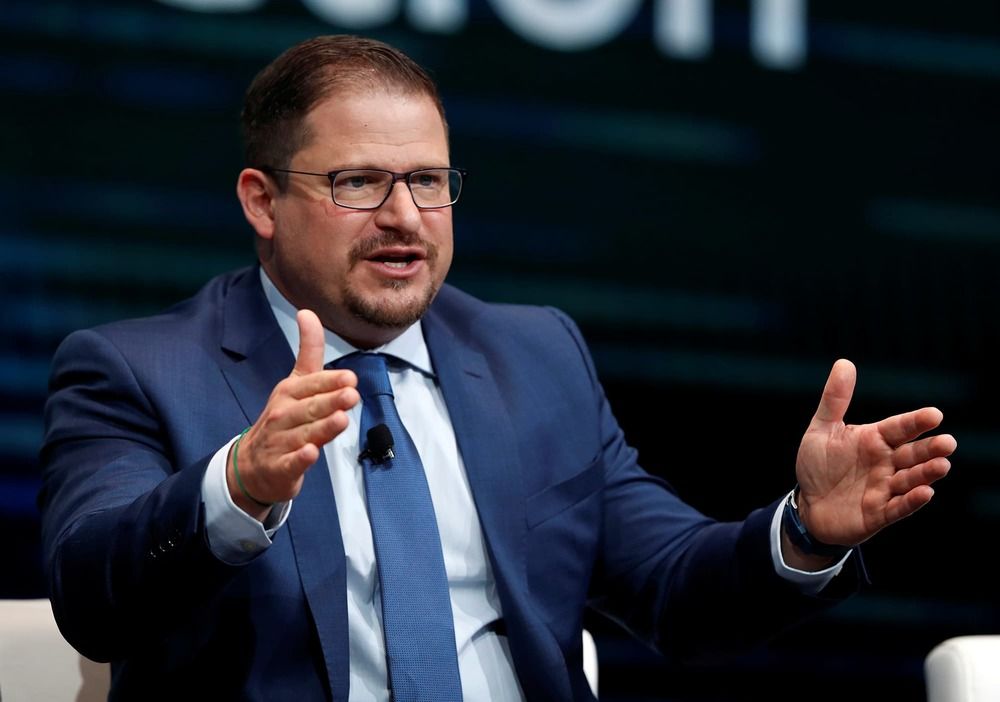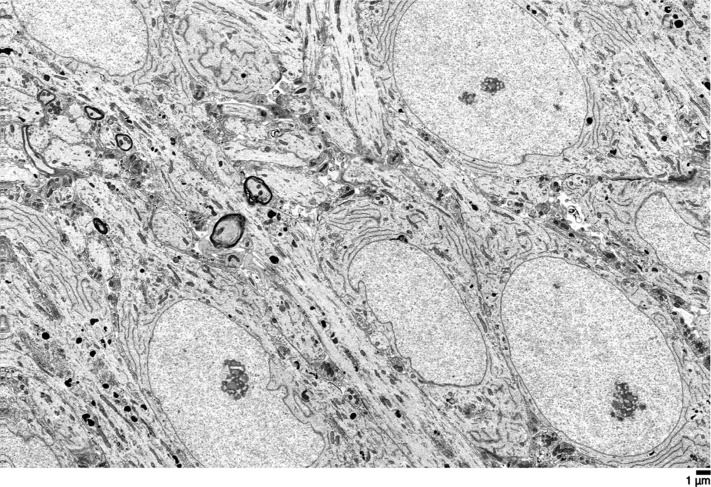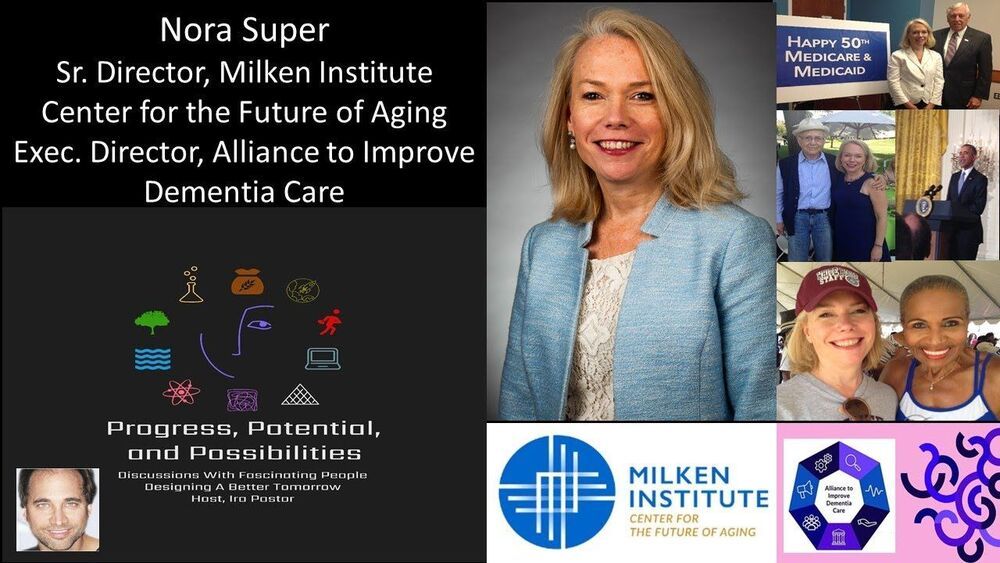Tanzania considers crypto—and boosts bitcoin—as nations line up behind el salvador to embrace decentralized finance.
El Salvador voted to adopt bitcoin as legal tender last week.


U.S. chip goliath Qualcomm has said it is open to the idea of investing in U.K. chip designer Arm if the company’s $40 billion sale to Nvidia is blocked by regulators, according to The Telegraph newspaper.
Qualcomm’s incoming CEO, Cristiano Amon, said Qualcomm would be willing to buy a stake in Arm alongside other industry investors if SoftBank, Arm’s current owner, listed the company on the stock market instead of selling it to Nvidia, the newspaper reported Sunday.
“If Arm has an independent future, I think you will find there is a lot of interest from a lot of the companies within the ecosystem, including Qualcomm, to invest in Arm,” Amon said. “If it moves out of SoftBank and it goes into a process of becoming a publicly-traded company, [with] a consortium of companies that invest, including many of its customers, I think those are great possibilities.”

The aircraft could be used to transfer passengers between home and airports, Virgin believes. It would be able, for example, to make the 56-mile journey from Cambridge to Heathrow in 22 minutes, compared with a 90-minute drive.
The announcement represents another step in the race to making mass electric flight and air taxis a reality. Some analysts have predicted the sector could be worth £150bn by 2040 but significant hurdles remain, including regulation and safety certification. The VA-X4 has yet to take its first test flight. Dómhnal Slattery, the chief executive of Avolon, said its order would “accelerate the inevitable commercial rollout of zero-emissions aircraft. Before the end of this decade, we expect zero-emission urban air mobility, enabled by eVTOLs, to play an increasingly important role in the global commercial aviation market.”

An emerging ransomware strain in the threat landscape claims to have breached 30 organizations in just four months since it went operational, riding on the coattails of a notorious ransomware syndicate.
First observed in February 2021, “Prometheus” is an offshoot of another well-known ransomware variant called Thanos, which was previously deployed against state-run organizations in the Middle East and North Africa last year.
The affected entities are believed to be government, financial services, manufacturing, logistics, consulting, agriculture, healthcare services, insurance agencies, energy and law firms in the U.S., U.K., and a dozen more countries in Asia, Europe, the Middle East, and South America, according to new research published by Palo Alto Networks’ Unit 42 threat intelligence team.

Circa 2015 brain immortality through aldehyde stabilized cryopreservation.
We describe here a new cryobiological and neurobiological technique, aldehyde-stabilized cryopreservation (ASC), which demonstrates the relevance and utility of advanced cryopreservation science for the neurobiological research community. ASC is a new brain-banking technique designed to facilitate neuroanatomic research such as connectomics research, and has the unique ability to combine stable long term ice-free sample storage with excellent anatomical resolution. To demonstrate the feasibility of ASC, we perfuse-fixed rabbit and pig brains with a glutaraldehyde-based fixative, then slowly perfused increasing concentrations of ethylene glycol over several hours in a manner similar to techniques used for whole organ cryopreservation. Once 65% w/v ethylene glycol was reached, we vitrified brains at −135 °C for indefinite long-term storage. Vitrified brains were rewarmed and the cryoprotectant removed either by perfusion or gradual diffusion from brain slices. We evaluated ASC-processed brains by electron microscopy of multiple regions across the whole brain and by Focused Ion Beam Milling and Scanning Electron Microscopy (FIB-SEM) imaging of selected brain volumes. Preservation was uniformly excellent: processes were easily traceable and synapses were crisp in both species. Aldehyde-stabilized cryopreservation has many advantages over other brain-banking techniques: chemicals are delivered via perfusion, which enables easy scaling to brains of any size; vitrification ensures that the ultrastructure of the brain will not degrade even over very long storage times; and the cryoprotectant can be removed, yielding a perfusable aldehyde-preserved brain which is suitable for a wide variety of brain assays.

Health, Equity, And Economic Growth — Dr. Helene Gayle, MD, MPH, President and CEO, The Chicago Community Trust.
Dr. Helene D. Gayle, MD, MPH, is President and CEO of The Chicago Community Trust (CCT), one of the nation’s oldest and largest community foundations, and under her leadership, CCT has adopted a new strategic focus on closing the racial and ethnic wealth gap in the Chicago region.
An expert on global development, humanitarian, and health issues, for almost a decade, Dr. Gayle was president and CEO of CARE, a leading international humanitarian organization, and prior to that spent 20 years with the U.S. Centers for Disease Control, working primarily on HIV/AIDS. She also worked at the Bill & Melinda Gates Foundation, directing programs on HIV/AIDS and other global health issues.
Dr. Gayle serves on public company and nonprofit boards, including The Coca-Cola Company, Organon, Palo Alto Networks, Brookings Institution, Center for Strategic and International Studies, New America, ONE Campaign, Federal Reserve Bank of Chicago, and Economic Club of Chicago. She is a member of the American Academy of Arts and Sciences, Council on Foreign Relations, American Public Health Association, National Academy of Medicine, National Medical Association, and American Academy of Pediatrics.
Dr. Gayle was awarded the Chicago Mayor’s Medal of Honor for her work on COVID relief and recovery for the city. Named one of Forbes’ “100 Most Powerful Women” and one of Non Profit Times’ “Power and Influence Top 50,” she has authored numerous articles on global and domestic public health issues, poverty alleviation, gender equality, and social justice.
Dr. Gayle was born and raised in Buffalo, NY. She earned a BA in psychology at Barnard College, an MD at the University of Pennsylvania, and an MPH at Johns Hopkins University. She has received 18 honorary degrees and holds faculty appointments at the University of Washington and Emory University.

The Perseverance rover began a two-year mission to collect Martian soil samples this year. It’s the first of three missions, jointly sponsored by NASA and ESA, aiming to bring Martian soil back to Earth in hopes of finding evidence of past life. The total costs of the missions will likely exceed more than $9 billion.
MORE SO EXPENSIVE VIDEOS:
Why Japanese Eel Is So Expensive.
Why Black Opal Is So Expensive.
Why Ceylon Cinnamon Is So Expensive.
#Mars #Space #BusinessInsider.
Business Insider tells you all you need to know about business, finance, tech, retail, and more.
Visit us at: https://www.businessinsider.com.
Subscribe: https://www.youtube.com/user/businessinsider.
BI on Facebook: https://read.bi/2xOcEcj.
BI on Instagram: https://read.bi/2Q2D29T
BI on Twitter: https://read.bi/2xCnzGF
BI on Amazon Prime: http://read.bi/PrimeVideo.
Why two pounds of dirt from mars costs $9 billion | so expensive.

For that, they will need the quantum equivalent of optical repeaters, the components of today’s telecommunications networks that keep light signals strong across thousands of kilometers of optical fiber. Several teams have already demonstrated key elements of quantum repeaters and say they’re well on their way to building extended networks. “We’ve solved all the scientific problems,” says Mikhail Lukin, a physicist at Harvard University. “I’m extremely optimistic that on the scale of 5 to 10 years… we’ll have continental-scale network prototypes.”
Advance could precisely link telescopes, yield hypersecure banking and elections, and make quantum computing possible from anywhere.

Microsoft has galvanised policy makers across seven Asia-Pacific markets, including Singapore and Indonesia, in a bid to facilitate the sharing of threat intelligence and resources amongst their respective public sector. The US software vendor says “collective” efforts across the region are critical in combating cybersecurity threats, which are inevitable in an increasingly interconnected world.
It noted that Asia-Pacific saw malware and ransomware attacks at higher frequencies, clocking 1.6 and 1.7 times higher, respectively. than the global average. Citing numbers from its 2019 threat report, Microsoft said developing markets such as Indonesia, India, and Sri Lanka were most vulnerable to such threats that year.
It added that cybercrime not only resulted in financial losses and brought down operations, but also posed risks to national security and eroded trust in digital economies.

Senior director, milken institute center for the future of aging, milken institute; executive director, alliance to improve dementia care.
Nora Super is the Senior Director of the Milken Institute Center for the Future of Aging (CFA) (https://milkeninstitute.org/centers/center-for-the-future-of-aging) and the Executive Director of the Milken Institute Alliance to Improve Dementia Care (https://milkeninstitute.org/centers/center-for-the-future-of-aging/alliance-to-improve-dementia-care).
Mr. Super provides strategic direction for the two primary focus areas of CFA: Financial Wellness and Healthy Longevity, and oversees data-driven research, meaningful policy initiatives, and impactful convenings around the world.
Launched in 2020, the Alliance to Improve Dementia Care seeks to transform and improve the complex health and long-term care systems that people at risk for and living with dementia must navigate.
Ms. Super studied political science at Tulane University and completed her master’s degree in public administration, with a concentration in health policy, at George Washington University, and is a respected thought leader, frequent speaker, and prolific writer on healthy longevity and the economic and social impact of global population aging. In 2019, she authored two major reports: “Reducing the Cost and Risk of Dementia: Recommendations to Improve Brain Health and Decrease Disparities” and “Age-Forward Cities for 2030.”
Before joining the Milken Institute, Ms. Super held several key leadership roles in the public and private sectors. In 2014, President Barack Obama appointed Ms. Super Executive Director of the White House Conference on Aging, where she received wide recognition for her nationwide efforts to improve the lives of older Americans. In 2015, Ms. Super was recognized as one of America’s top 50 “Influencers in Aging” by PBS Next Avenue and was the Honoree for Outstanding Service to Medicare Beneficiaries by the Medicare Rights Center.
Ms. Super has also held leadership roles at the US Department of Health and Human Services, AARP, Kaiser Permanente, and the National Association of Area Agencies on Aging.
Ms. Super serves on several boards, including the Long-Term Quality Alliance, the Brain Health Partnership Advisory Board, the Bipartisan Policy Center’s Advisory Committee on Improving Care Delivery for Individuals with Serious Illness, the Better Medicare Alliance Beneficiary Education Technical Advisory Council, the Brookings Institution and Kellogg School of Management Retirement Security Advisory Board, Columbia University Medical Center’s Health and Aging Policy Fellows Program Steering Committee, Retirement Income Institute’s Scholars Advisory Group, and Gerontological Society of America’s Policy and Aging Report Editorial Board and Reframing Aging Initiative Advisory Board.